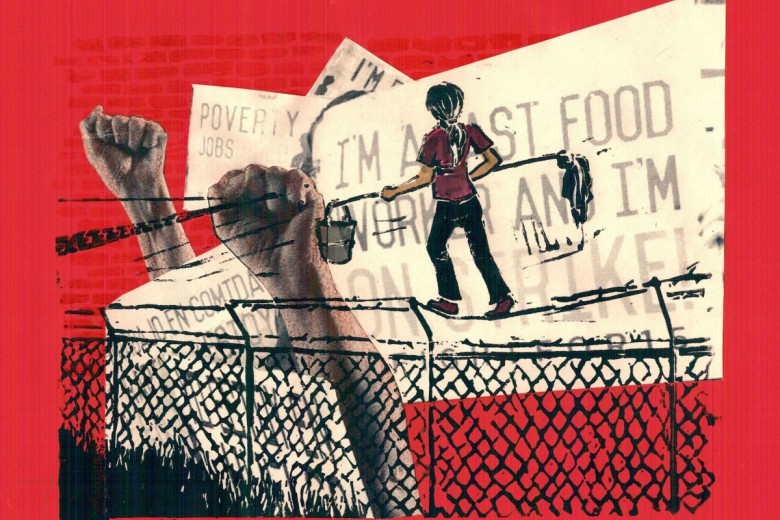
“At every women’s gathering the divisions of race, class, nationality and ethnicity erupt, tearing the unity that brings women together…. We can pretend that differences do not exist, or we can explore them, and in the process reformulate feminism itself. The latter is more difficult and painful, but indispensable, if sisterhood is to become more than a slogan.”
—Asoka Bandarage, “Toward International Feminism” 1994
“[A] vision of global feminism should be one which engages women at all levels of society in all aspects of their lives, encouraging productive diversity rather than homogeneity, while proposing a pro-active redistribution of power, rather than reactive critique of its current allotment.”
—Renee Martyna, “Whiter Global Feminism?” E-merge 2000
This issue of Briarpatch is about opening our activism to new voices and new perspectives. As Naomi Wolf recently observed, “our (Western) moment of feminist leadership is over now, for good reasons… . [T]he leadership role is shifting to women in the developing world.”
To be clear, Wolf is not suggesting that Western feminists have won their battles and so are free to retire to Guatemala or Thailand to help those poor other women win the same battles. Rather, her point is that feminism in the West/Global North (I use these equally inadequate terms interchangeably) cannot be universalized, and that feminism has so far failed to address the economic inequalities, local and global, that have seen some women prosper while the majority have only suffered increased economic insecurity. The antidote — global feminism — could equally be described as majority feminism.
Like the labour movement, the feminist movement in the Global North has grown gradually more conservative over the past two decades, fighting (and often losing) rearguard actions to hold onto the rights and privileges previous generations had won, rather than seeking to broaden those victories across lines of race, class and nation. Western feminism has largely bought into the unequal rewards of global capitalism and become complicit in the imperial project: we occupy Afghanistan as supposed liberators-of-women while those same women slide deeper into poverty and insecurity. We import Filipino women to care for our children and Mexican men to grow our vegetables while women in Chinese and Haitian sweatshops sew our clothes. We rail against the misogyny of Islamic fundamentalism but have too little to say about the Western militarism and IMF-imposed Structural Adjustment Programs that fuel it.
We must remember that our struggles for gender equity, work with dignity, personal security and ecological integrity are interconnected, that one form of oppression feeds another, and that capitalism thrives on and deepens all these various oppressions. As Johanna Brenner saw clearly back in 1993, “[t]he solution to the political impasse facing feminism cannot come from feminists alone” but requires “a serious and disruptive challenge to capital” (New Left Review, July/August 1993).
The feminist political impasse Brenner identified 17 years ago has persisted, and meanwhile capital has gone increasingly global — a challenge that requires feminism and trade unionism alike to go global, too. Effective challenges to gender and class oppression must come from and respond to those who bear the brunt of such oppression; they can’t originate with those who have benefitted from it. Acting on this realization requires looking both outside our borders and inside ourselves.
As Arundhati Roy has said, “The battle lines are not drawn between women and men. They are drawn between particular world views.” We must recognize that the next wave of feminism, if there is to be a next wave, must come from the South, and orient our activism accordingly.






